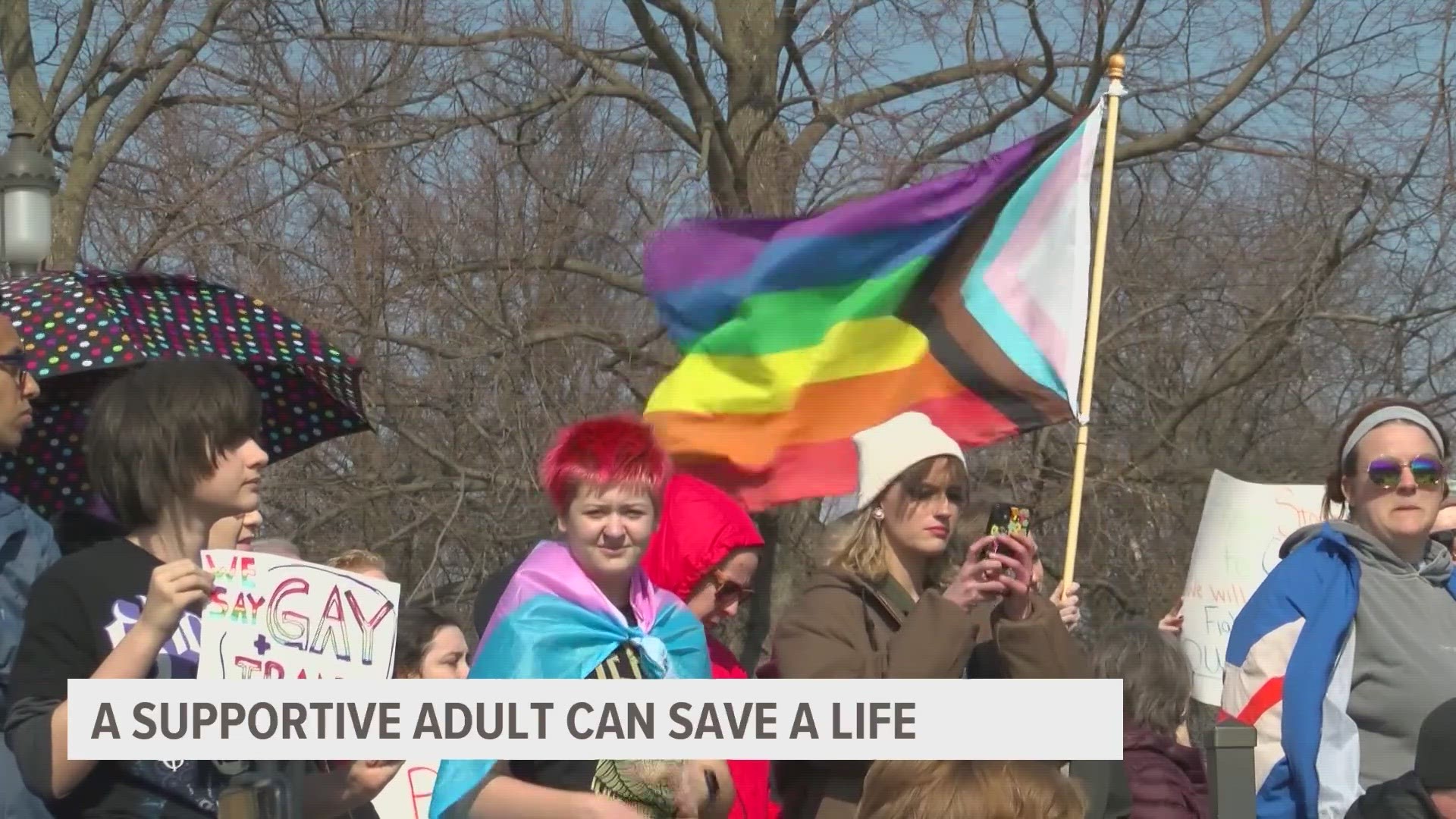DES MOINES, Iowa — Americans have been celebrating Pride month for more than 50 years, but some Iowans marking the occasion are taking on a different tone after a challenging year.
According to the Human Rights Campaign, more than 520 pieces of anti-LGBTQ legislation were proposed in state legislatures this year.
One Iowa identified more than 20 of them in Iowa, ranging from bans on gender-affirming care to requiring trans people to use school bathrooms matching their sex assigned at birth.
"There are people who hate us and who would rather have us be erased from history than taught in schools or talked about, but that's not what this month is about. This month is about tuning that out," said Jemma Bullock, a member of the Iowa Queer Students Alliance.
The Trevor Project's annual survey found that nearly one in three LGBTQ young people reported that their mental health is poor most or all of the time due to anti-LGBTQ legislation. 53% also say they've been harassed at school.
That environment is creating some very real risks for community members.
"The stigma, the violence, discrimination, physical harm, are all consistently—we found this across the years of doing this study—they're risk factors for suicide," said Dr. Myeshia Price, director of Research Science for The Trevor Project.
But The Trevor Project found some reasons for optimism, as well. Researchers found that suicide risks among LGBTQ youth decreased dramatically by having just one supportive adult in their lives.
"Young people are just looking for acceptance," Price said. "They want people to be there for them, to know that I have someone who will be there for me and accept me for who I am."
Community members say that being surrounded by that sort of support and positivity is what Pride month is all about.
"I don't want there to be any risks," Bullock said. "I want just to have a fun weekend, and to celebrate myself and my queer identity and all of my other friends."
According to the Human Rights Campaign, of the more than 300 anti-LGBTQ bills proposed in 2022, more than 91% failed to become law.

